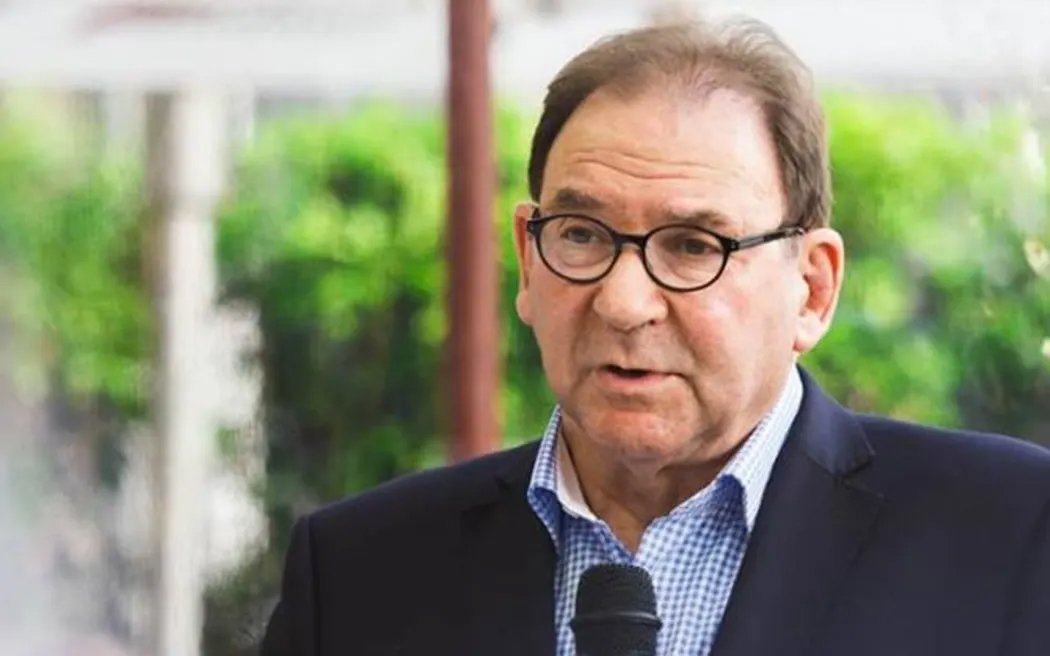
John Barnett spent almost two decades leading South Pacific Pictures, one of New Zealand’s most successful production companies.
Barnett was a producer or executive producer on four of the country’s 10 top grossing films: Footrot Flats, Whale Rider, Sione’s Wedding, and Once Were Warriors sequel What Becomes of the Broken Hearted?
Barnett’s success owed much to his ability to recognise a good idea — often one that already resonated with a wide audience — then finding the resources to bring that idea to fruition, however long it might take.
Another strength was his knack of picking promising creatives to helm projects; people like Niki Caro on Whale Rider, Vanessa Alexander and Peter Salmon on Emmy-nominated TV series Being Eve, Roseanne Liang (romance My Wedding and Other Secrets), and the multicultural team behind Sione’s Wedding.
Barnett grew up surrounded by books — for a time his parents ran a "very smart" bookshop in downtown Auckland. His business brain was evident early on. While studying for a commerce degree at Victoria University, he started a graphic design business with a friend — even though Barnett couldn’t "draw a straight line".
In 1970, he and three fellow graduates invested in the underfunded National Business Review, New Zealand’s first financial publication (he was an NBR director for 13 years). Often on the hunt for new opportunities, he "enjoyed seeing things take off and ideas get realised".
His producing career began with children’s show The Games Affair, shot during the 1974 Commonwealth Games. Friends invited him on board to help pitch and make this early indie production, despite Barnett having had "no experience or exposure" to the screen world. The job was "fun, so that’s how it started". The crew included a range of future Kiwi screen luminaries, from Don Reynolds to Geoff Murphy.
When state television closed its doors to independent film-makers, Barnett switched to managing talent — notably his university friend John Clarke, whose rural alter ego Fred Dagg made a swift rise to multimedia stardom. Barnett’s first incursion into movie theatres occurred when director Geoff Murphy approached him with Wild Man (1977), an expanded episode of Blerta. Adding extra footage brought it close to the length required for a theatrical release; throwing a Fred Dagg film on top made for an enticing double bill. Murphy and Clarke began filming Dagg Day Afternoon in Wellington on a Monday, and finished in Auckland on Friday, writing material as they went.
Barnett followed it in 1979 with his first feature: acclaimed dramedy Middle Age Spread. He described it as "a modest little film" that did very well at the local box office. Thanks to the success of Roger Hall’s play about a school principal having an affair, it had a built-in audience. Indicative of Barnett’s successes was a canny ability to pick projects for which there was a likely market demand.
Barnett’s next project was early Kiwi hit Beyond Reasonable Doubt, based on Arthur Allan Thomas’ conviction for the murders of Harvey and Jeanette Crewe. It marked the feature debut of director John Laing, who would later produce one of South Pacific Pictures’ biggest TV hits, Outrageous Fortune.

Barnett also helped producer Pat Cox find finance for New Zealand’s first animated hit, Footrot Flats. Barnett played a hand in the film’s ambitious marketing efforts, including music and merchandising.
Barnett would go on to find finance — and a director — for the acclaimed Whale Rider (2002), after taking over the project from its original producer Murray Newey. The movie won a Bafta Award, Oscar nominations for actor Keisha Castle-Hughes, and over $50 million internationally. Another project that took years to hone was Polynesian comedy Sione’s Wedding (2006).
"Sione took a while, because not everybody could see that it was going to have a wide appeal — some people told me it would be very limited but I never had any doubt."
In November 1993 Barnett was appointed managing director of South Pacific Pictures, which had begun five years earlier as a drama unit under TVNZ. Five years later he led a management buyout. Barnett was SPP’s chief executive and owned 40%. In
2012 he handed the chief executive reins to ex-TV3 programming head Kelly Martin, and became SPP chairman. The following year he sold his stake in the company to All3Media and left SPP at the end of 2015.
The company’s annual output has sometimes represented as much as 40% of local TV production. Among that content, Barnett described SPP’s flagship soap Shortland Street as vital for having trained a wide range of crew whose skills fed into the screen industry as a whole. The show was also a major catalyst in helping "New Zealanders accept New Zealand drama to a degree that had not happened before".
Another key title was Outrageous Fortune. Barnett argues that the remake rights sold overseas thanks to the show’s universal concept of "a family that lives just a little bit on the edge, trying to go straight".
In 2002 Barnett received the SPADA/Onfilm Industry Champion Award. In 2003 he was made an Officer of the NZ Order of Merit, then in 2020, a Companion (CNZM). He was also awarded an honorary Doctorate of Commerce at Victoria University, for his contribution to New Zealand film and television. In 2017 he was presented with a special TV Legend Award, at the NZ Television Awards.
Barnett continued to develop new screen projects and in 2024 he co-produced (with Chloe Smith) six-part serial killer thriller Dark City: The Cleaner, based on the bestselling book by Paul Cleave.
John Barnett died on August 24, aged 80, remembered as a man who wanted to entertain all of New Zealand. — NZONSCREEN












